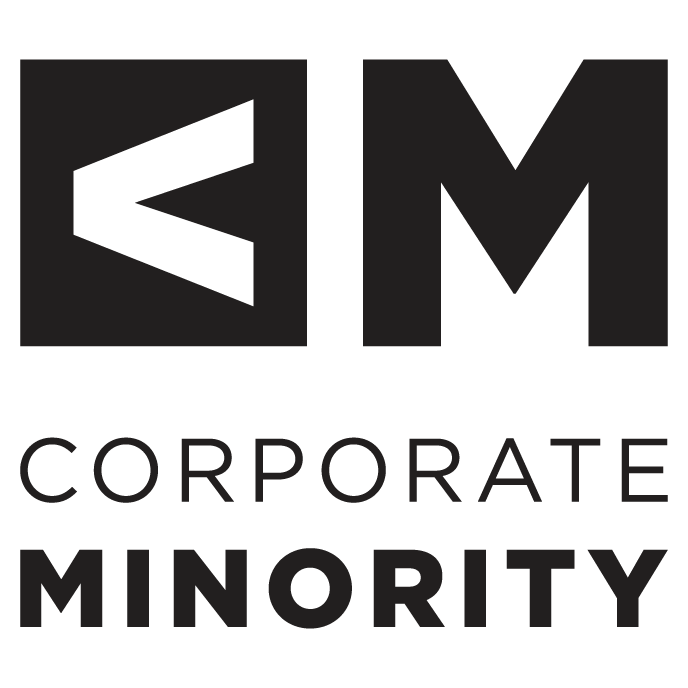11 years ago, I was in the Army as a petroleum supply specialist. For an unknown reason, the person in charge of HR left and I was asked to help out. A year later I began working for DOD in an HR capacity where I remained for two years before being deployed to Iraq. Again, even overseas, I found myself in the personnel office (or S-1 shop). Long story short…I stumbled into HR as did many of the professionals I interviewed. Each of them mentioned that at some point in their lives, they were exposed to a piece of human resources and sort of… you know… fell into it.

I’m often asked “how do I get into human resources”? I’ve also familiarized myself with many articles about how professionals, recent graduates and others alike can get into human resources. In the past few weeks, I’ve interviewed various HR professionals from a variety of organizations – assistants, coordinators, recruiters, generalists, business partners, analysts, specialists, advisors, managers, VP’s and one CHRO. Although each of these professionals were from different industries, it was interesting to find their feedback to be very similar.
Please note that this isn’t an all-inclusive list, and there are many other ways you can become an HR professional. Below are some tips (compiled from my conversations with each) that I’d like to share with you about getting into HR.
1. Know why you want to be in HR
From the interviews, most of the professionals stated that knowing why you want to be in human resources will be crucial to your success in the field. What are your reasons? Do you like solving problems? What are you passionate about? Many agreed that HR is 100% about the people and 100% about the business. Yes, you read it correctly. If you’re only interested in HR because of the people, you are missing a key element of the value that the field adds. All agreed that in order to be a successful HR professional that you must also have an interest in the business.
2. Familiarize yourself with the dimensions of HR
Human resources is very broad and there are many ways you can get into the field. You have to ask yourself what area of HR you want to be in. Do you like talking to people, or are you more analytical? Do you enjoy teaching others new things? Are you data driven? Make sure you ask yourself these questions before jumping in. Below are a few functions within HR. Take some time to research what they all entail. You may find that you don’t like finding out about people’s past work experience (recruiting) but you do like data (Human resources information systems).
- Recruiting
- Employee Relations
- Payroll (for some companies-not all)
- Training and development
- Wellness
- Compensation & Benefits
- Leave
- Information Systems
- Compliance
Familiarizing yourself with the functions of HR will help you narrow your focus. For example, I don’t like numbers; therefore, I would never thrive in an HRIS capacity. However, this role is still within HR.
3. Don’t disregard the entry-level roles
Entry-level roles are an awesome way to gauge what function of HR you’d like to pursue. These roles may include an HR Assistant, Coordinator or Representative. Entry-level positions not only give you valuable experience but they also provide you with an advantage should a position within HR opened. One individual I interviewed stated, “You can be the assistant (coordinator/representative) who just assists and that’s it, or you can be the assistant that is consistently learning and trying to do more.” Don’t miss a great opportunity to be exposed to all aspects of HR.
4. Don’t be afraid to V.I.M (Volunteer, Intern and Meet)
Clearly I made that acronym up, but what I can say, I’m a veteran- we make up acronyms about everything.
There were three common opinions among the various levels of those that I interviewed:
Volunteer: If you’ve discovered that HR really is your passion and you’d like to learn more about the field, be open to volunteering. Check out volunteer opportunities with your local HR/SHRM Chapters. If you’re in college, you can also check to see if your school has a university chapter. Volunteering can also give you an idea of what area within HR you might enjoy. Although everyone wants to be compensated for their work, sometimes experience proves to be more valuable.
Intern: If you’re still in college, be on the lookout for internships in HR. With summer right around the corner, job postings for internships should be available now. Although some are quite competitive, internships are a great way to obtain solid experience.
Meet: Often times, local and university chapters have monthly member meetings. During these meetings, discussions revolve around HR events, updates to the law, new changes that may affect employers and/or employees, and a host of other things. These chapter meetings serve a dual purpose – not only do you learn more about the field and stay on the cutting edge of any new changes, but you also connect with individuals who have a common interest.
NOTE: The majority of individuals I interviewed pointed out that if you’re already established in your career, it’s important to demonstrate how your experience translates. Many of them stated that they weren’t interested in the results you achieved, but how the results were achieved through others. The ability to communicate this has a direct correlation to the management of human capital.
5. You must connect
Most of the professionals I interviewed stated they may have stumbled into their first HR job, but they were able to grow by building relationships and networking. You can build these connections through volunteering, interning and meetings, as I mentioned above. Another way to build relationships is to identify an individual in a role that you aspire to be in and ask them to share a few challenges and rewards of their role. Connecting isn’t always about securing your next opportunity. Connecting is about building genuine and meaningful professional relationships – and if a job comes of it, that’s just a cherry on top.
Statistics
- 94% of those interviewed stumbled into HR
- 63% of those interviewed started in HR in a recruiting capacity
- 40% of those interviewed started in HR in an admin/coordinator capacity
- 85% of those interviewed believed that certifications validate to your commitment to the field
- 96% of those interviewed believed that networking was important
- 75% of those interviewed belong to a HR professional organization
Something for your toolbox
- Liking people is not a pre-requisite to becoming a human resources professional
- Narrow your focus and decide what function of human resources you’re interested in
- Don’t be afraid of the entry-level jobs. Sometimes, those are the most important roles you may ever have
- Volunteer to get a feel of what you enjoy
- Translate your experience in way that demonstrates results you’ve achieved through others
- Surround yourself around other HR professionals
- Don’t be afraid to connect and network
- You need to understand the business





